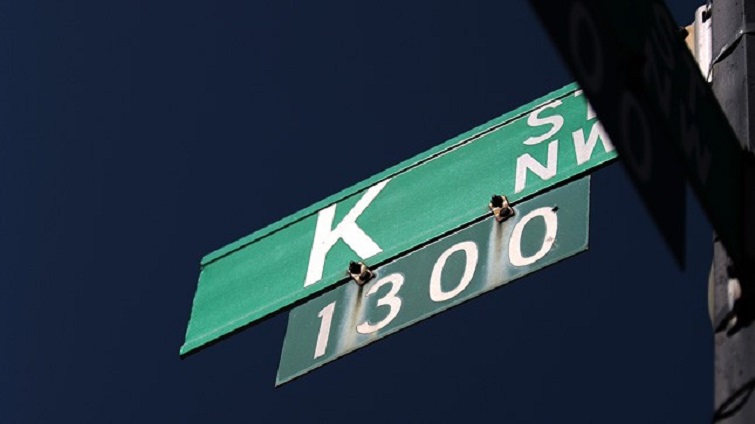Proponents of the government’s terrorism insurance program mobilized a massive lobbying effort to get the program reauthorized, as Congress weighed contentious extension legislation approved last month, the end of a protracted battle.
In the final push, an army of more than 150 entities — including business interests, the tourism industry, labor groups and sports leagues — registered to lobby on the issue, newly released disclosure records reveal.
“We basically painted the Senate with meetings, because we had such a broad coalition involved,” said one financial services lobbyist. “You needed an amplified voice to move this to the front of the queue.”
The Terrorism Risk Insurance Act (TRIA) officially expired on Jan. 1, leaving the fate of the post-9/11 program uncertain.
But over the final three months of 2014, lobbyists pressed forcefully for passage of reauthorization legislation by the gridlock-plagued Congress.
“At the end of the day, this deal came together — and it looks easy in hindsight — but there was real trepidation that this would fall apart,” said the lobbyist, who asked not to be named in order to speak freely.
In the weeks before the House and Senate struck the deal, lobbyists waited for lawmakers and their staffs outside of congressional cafeterias or caught them walking down hallways, to push for meetings to emphasize the importance of the program.
“The irony of where we stand today with technology and media, the final push — probably from post-Thanksgiving right through Jan. 8 — it was truly shoe-leather [advocacy],” Tom Santos, the vice president for federal affairs for the American Insurance Association told The Hill. “It wasn’t convincing folks of the merits of the program but reminding them that this needs to happen.”
Lawmakers overwhelmingly approving TRIA, 416-5 in the House and 93-4 in the Senate on Jan. 8, and sent the bill to Obama’s desk, where it became the first to be signed by the president in the new Congress.
The groups that jumped into the lobbying fray were far from limited to corporations in the financial services and insurance sectors. States and municipalities, unions, universities, resorts, hotels, casinos, technology companies and energy companies also listed the issue in lobbying reports covering the final quarter of 2014.
“We had already done all the homework in educating members. Then, it was just getting it over the last hurdle,” Santos said.
The program was created in the wake of 9/11 to help businesses shoulder the burden of costs incurred resulting from a terrorism attack. It has not been used since its inception.
More than half of the House and about a third of the Senate had not been around to vote on TRIA’s last reauthorization in 2007, so lobbyists said they had a lot of educating to do.
K Street also faced a tougher battle in renewing TRIA this year than in previous ones, as some members, including Rep. Jeb Hensarling (R-Texas), chairman of the House Financial Services Committee, and Sen. Marco Rubio (R-Fla.), were vocal opponents and equated the program to corporate welfare.
“There was always that isolated criticism, but I don’t ever recall a fear that it wasn’t going to get reauthorized,” said Craig Kalkut, of the American Hotel and Lodging Association.
Outside groups that opposed the legislation, such as Heritage Action for America, saw the hard-fought battle as evidence of a long-term shift in how the program would be framed in future debates.
“It took a long time for them to get it across the finish line. … The business community had a ton of muscle behind it, but you certainly get the sense that it was a more contentious issue than it has been, despite the vote count,” said Dan Holler, Heritage Action’s communications director. “The next time it comes up, hopefully the conversation will increase, the votes against it will increase — either to not reauthorize it, or for members to make truly substantive reforms.”
Sen. Charles Schumer (D-N.Y.) and Hensarling worked to hammer out a deal in the lame-duck session following the November elections, but now-retired Sen. Tom Coburn (R-Okla.) blocked a vote on the legislation at the eleventh hour because of opposition to unrelated language tucked into the bill.
When the Senate adjourned in December without taking a vote, industry coalitions told The Hill they were “stunned.”
“Once we got over that shock and disappointment, we started working on a strategy to get this bill done early in 2015,” said Martin DePoy, the steering committee coordinator for the Coalition to Insure Against Terrorism. “That was a collaborative effort with the business community and insurance industry.”
The coalition was one of a few that cobbled resources to press Congress to act on the terror insurance bill.
Formed in 2001, the Coalition to Insure Against Terrorism played a role in getting the first TRIA signed into law in 2002. It contains a wide array of groups — including several financial associations, hotel chains, NASCAR, the NFL, United Airlines, the American Association of Port Authorities, the Campbell Soup Co., Edison Electric Institute and others.
Read more: How K St. helped push terror insurance bill over the goal line













Leave A Comment